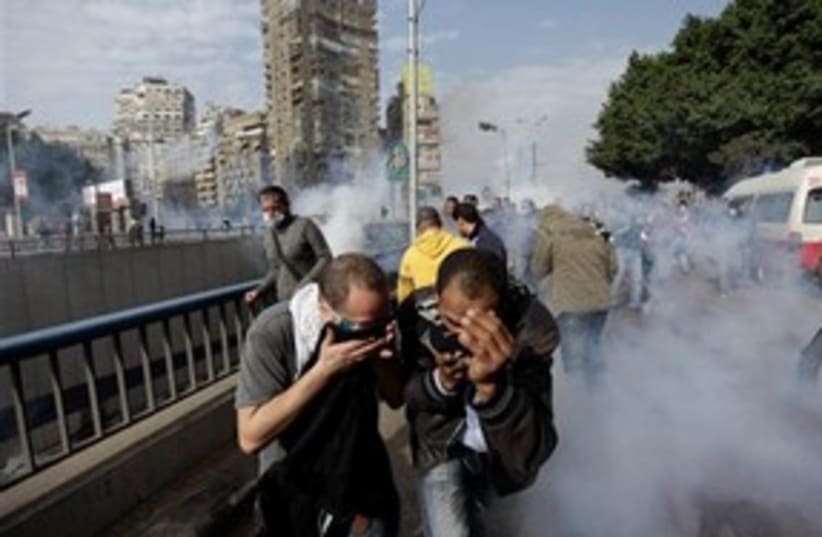Nationwide curfew imposed in Egypt; army deploys on streets
Mubarak orders military reinforcement for first time since anti-gov't protests began; ruling party headquarters goes up in flames in Cairo; 2 killed in clashes hours earlier, ElBaradei under house arrest.
